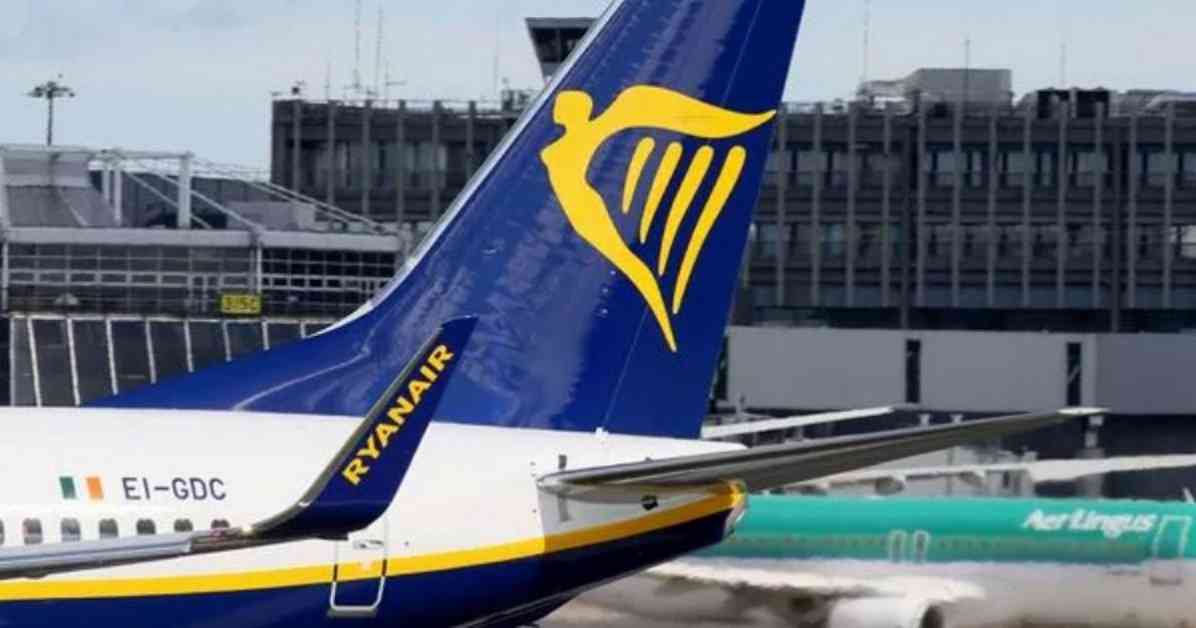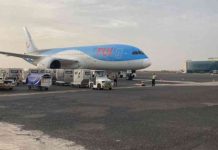In a recent mid-air emergency, a Ryanair flight traveling to Gran Canaria from Bournemouth was forced to make an emergency landing in France after a female passenger suffered a suspected heart attack. The heroic crew members on board took swift action to shield the passenger from prying eyes and called for any medically-trained passengers to come forward to assist.
Witness Chris Howard recounted the harrowing experience, noting that the crew made an announcement over the PA system asking for any medically-trained individuals to identify themselves. Luckily, a retired cardiologist was among the passengers and was able to assess the woman’s condition. Following a conversation with the pilot, the aircraft made a rapid descent towards Brest, where medical assistance was waiting.
Howard commended the Ryanair staff for their professionalism in handling the situation and ensuring the passenger’s privacy amidst the chaos. He expressed gratitude for the quick response, stating, “Approximately an hour later we were taking off and were on our way home, which was amazing really. We all felt like they’ve done a smashing job.”
A Ryanair spokesperson confirmed the incident, stating, “This flight from Gran Canaria to Bournemouth diverted to Brest after a passenger became ill onboard.” The crew called for medical assistance to meet the aircraft upon landing at Brest Airport, where the passenger was disembarked and transported to a nearby hospital for further treatment. The flight then continued on its scheduled route to Bournemouth that same day.
Expert Insights on In-Flight Medical Emergencies
Dr. Sarah Johnson, a specialist in emergency medicine, shed light on the challenges of dealing with medical emergencies at high altitudes. She emphasized the importance of having medically-trained individuals on board to assist in such situations, as prompt intervention can be critical in saving lives.
“Mid-air medical emergencies pose unique challenges due to limited resources and space constraints,” Dr. Johnson explained. “Having passengers with medical expertise can make a significant difference in stabilizing a patient until they can receive proper medical care on the ground.”
Passengers are often unaware of the risks associated with flying, including the potential for medical emergencies to occur unexpectedly. Being prepared for such situations and knowing how to respond can help ensure a positive outcome in critical moments.
The Human Side of In-Flight Emergencies
Emergencies in the air can be unsettling for passengers and crew alike, highlighting the importance of remaining calm and working together to address the situation. The support and quick thinking of individuals like the retired cardiologist on the Ryanair flight demonstrate the power of community and compassion in times of crisis.
As we navigate the uncertainties of air travel, it is essential to remember that we are all connected by our shared humanity. Acts of kindness and courage, such as those displayed on the Ryanair flight, serve as a reminder of the resilience and solidarity that can emerge in the face of adversity.
In conclusion, the mid-air emergency on the Ryanair flight serves as a testament to the importance of preparedness and teamwork in handling unexpected situations. By coming together and offering support when it is needed most, passengers and crew can make a positive impact and ensure the safety and well-being of all on board.



























